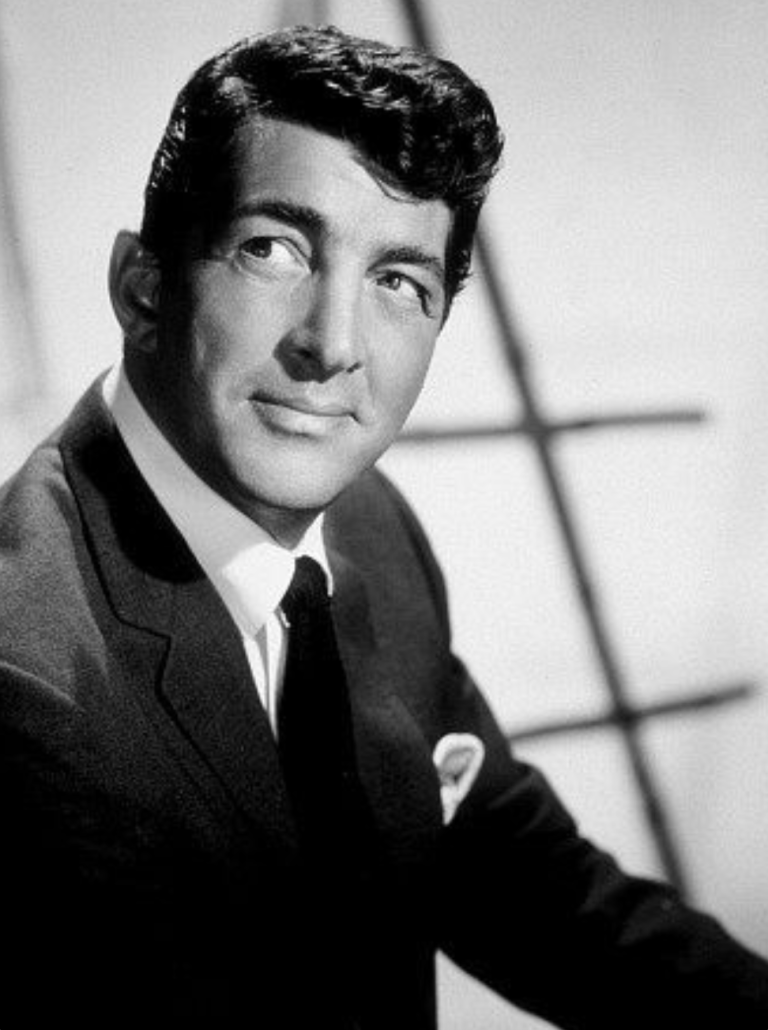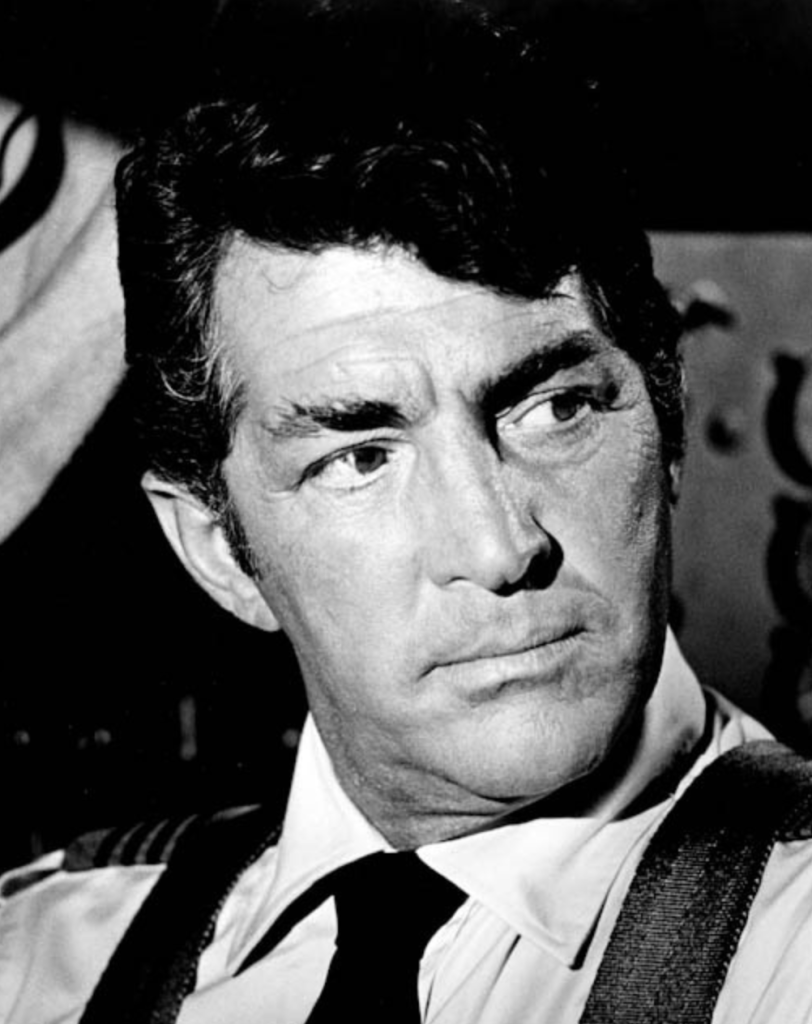
It was the very King of Rock ‘n’ Roll, Elvis Presley, who christened Dean Martin “King of Cool,” and the definition fits like a glove, as proven by the eponymous film directed by Tom Donahue and produced by Ilan Arboleda. The movie, that premieres at DOC NYC, will be available on Turner Classic Movies. The impassioned documentary has an extraordinary rhythm in condensing an avalanche of interviews with Dean Martin’s family members, friends, colleagues and supporters.
The narrative pace of King of Cool is remarkable: the clever montage welds the perspectives of different interviewees with footage about Dean Martin, that ultimately channel a unanimous concept. The film intertwines the multitudinous chronicles of the those who met and were inspired by the coolest of performers, with exceptional archival material of his films, TV shows and interviews. What emerges is the sense of mystery behind the buoyant icon. Some will say his charm and optimism derived from his attitude of “menefreghista” (i.e. someone who wouldn’t give a damn!), others refer to his propensity to be reserved about his worries and woes.
In these terms, a pertinent parallelism is made with Macbeth’s quote: “Give sorrow words: the grief that does not speak whispers the o’er-fraught heart, and bids it break.” This sensation is blatant with the divorces and family losses Dean Martin had to confront throughout his life. Even when he found out he was ill, he did not make a fuss, nor did he tell anyone about his condition. He called his friend Frank Sinatra on what would become his last Christmas Eve, just to tell him a joke.

The most impressive trait of King of Cool, is how it makes a parallelism with Citizen Kane and, through a filmic treasure hunt, it explores the life of Dean Martin in search of his Rosebud. This uplifting journey allows spectators to question what their subconscious happy place is. Thus, the idol becomes relatable, as viewers retrace his life from childhood until his last days.
As the film progresses we discover more about Dino Crocetti, as opposed to Dean Martin the public figure. We learn about his passion for golf, and that he was a man who enjoyed a quiet life instead of making merry. There are some anecdotes that will tickle you pink, for the stratagems Dean Martin would use to end his house parties.
He was born in 1917 and raised in Steubenville, Ohio — that some called Stupidville because of the unelevated leisurely activities that characterised the town, mostly going to brothels and gambling. And yet, the son of Gaetano, a barber from Abruzzo, and Angela, an Italian seamstress — along with his brother Bill — grew up with interests that differed from their hometown community. Dino would spend his days listening to records of Enrico Caruso and Carlo Buti. The comforting simplicity of his childhood was epitomised by Pasta fasul (an Americanisation of the Neapolitan dialect name “pasta e fasule” or Italian “pasta e fagioli”). His mother used to make it using Romano cheese, not Parmesan, and she would use a secret ingredient…that the film reveals.

Dean Martin felt so connected to his Italian heritage, that he learnt to speak English when he was 6 years old. As a youngster, before finding his musical path, he initially tried working in a coal mine and then in a cigar store. He even tried boxing and broke his nose. It was only when he eventually started singing in clubs, that he found his raison d’être. This was during the swinging era, when his style was influenced by Bing Crosby and The Mills Brothers.
As regards his private life, his first wife, Elizabeth “Betty” McDonald was the one who refined him. There is an amusing remark in the way she educated his table etiquette: “You don’t go down to the soup, the soup goes up to you!” Betty truly shaped the courtliness that would eventually become a distinguishing mark of Dean Martin.
Above all, his element of cool was his spontaneity. His refreshing authenticity became the key ingredient in his Dean Martin Show and Dean Martin Celebrity Roast, where there were no rehearsals with the guests and there was space for improvisation. Mistakes would lead to jokes and extemporaneous free-spirited moments.
An element of luck was also determining to help such a talent find his place in the sun. What was propitious for his career was the encounter with Jerry Lewis, since they became a popular duo. Frank Sinatra saw them at Copacabana and decided to endorse them, and after becoming the toast of New York they conquered Hollywood, signing a contract with Paramount.

Meanwhile, Dean and his family moved to Los Angeles. They now had 4 children, but Betty started drinking and they got divorced. Dean was already seeing the woman who would become his second wife, Jeanne Bigger, with whom he would have 3 more kids. Throughout his life, the American singer-actor was always present with all of his children and Jeanne became the glue to all of his family members — organising dinners with relatives and friends. Even when they divorced, after two decades of marriage, Dean and Jeanne remained closer than ever.
As regards Dean Martin’s partnership with Jerry Lewis it came to a halt due to the latter’s desire to have major exposure. This led to an artistic split between the two, and yet this moment of misfortune was followed by a fluke in Dean Martin’s life, when he was cast along Marlon Brando and Montgomery Clift in Young Lions. What followed were the glorious days with The Rat Pack, that marked the apex of nightclub culture.
King of Cool, goes beyond a mere reconstruction of the American performer’s biography. It delves deep into his soulfulness.
The crooner who popularised Volare in the United States, showed great solidarity towards his friends. This is demonstrated when he refused to go to JFK’s inauguration, because even though Kennedy flaunted great friendship with The Rat Pack he did not invite Sammy Davis Jr. and his wife May Britt, on the grounds that such an occasion could not include an integrated interracial couple. Dean Martin had a code of honour and declined to go, showing solidarity towards his snubbed friend.
In these regards there are plenty more occasions, that the film unveils, where Dean Martin shows his attachment to his dear ones. He was above and beyond a family man, and would seek to recreate that atmosphere in every situation of his life, whether it was the dinners with his friends, his artistic collaborations, or even the restaurant he would go to frequently that was coincidentally called “La Famiglia.”
He always stayed humble and recommended people not to feel almighty, because “power comes from the people,” he would say. Despite his great talent, he acknowledged how the audience has the ability to turn you into a star.
At the end of the cinematic journey, the motion picture shows how the withering of a life does not compromise the legend. When the declining person passes away, the one who everyone knew in life returns. The icon remains, respected by people from all walks of life.
King of Cool’s Executive Producers include Leonardo DiCaprio (with his production company Appian Way), Jennifer Davisson, Philip Watson, Danny Strong, Deana Martin, John Griffith, Paul Barry. The film is in memory of Tom Donahue’s and Ilan Arboleda’s partner at Creative Chaos, Steve Edwards.
Final Grade: A

